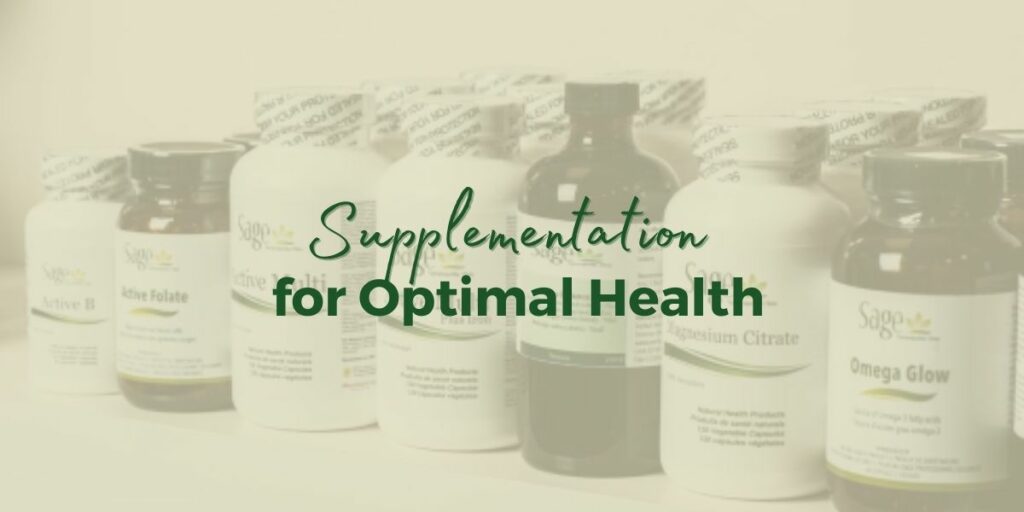
As a Naturopathic Doctor, I spend a lot of my time educating my patients around supplementation. Supplements can be single compounds or combinations of vitamins, minerals, oils, amino acids, and botanical extracts. They can be very useful to prevent illness, treat specific conditions and can be taken safely with pharmaceutical medications under supervision. Understanding when a supplement may be indicated, what form the supplement should be in and at what dose are the keys to appropriate and beneficial supplementation.
Benefits: Supplements can complement and replenish nutrients not adequate in our diet. My patients (and the general population) are very often not consuming enough protein, healthy fats, fruits and vegetables. Even if you are consuming a healthy diet, the quality of the soil where our food is grown is often deficient of micronutrients and supplementation can remedy this. More commonly supplements can be used to treat specific conditions to minimize or prevent the need of pharmaceutical interventions and side effects. Lastly, supplementation is helpful during times in life when we have an increased need for nutrients such as during times of growth (in children and during pregnancy), injury recovery and in the elderly when nutrient absorption declines.
Misconceptions: Many people believe that you just “pee out” the vitamins you consume. The reason why this concept developed is from the fact that multivitamins and B-complex vitamins can make your urine bright yellow and change its odour. Certain B vitamins, including vitamin B2 (riboflavin) and vitamin B12 contain yellow-green or yellow-orange pigments that naturally change the colour of your urine. You are excreting the pigment, not the vitamins. Many believe that you can get what you need from your diet. Often it would benefit you to supplement in order to complement your diet and the soil it came from. There are a wide array of supplement options on the market and people believe that they are all equal. Often a patient will tell me “I have tried that and it didn’t work”. The problem is often that it was the right item, but not the right form, extract, and dose. Another misconception is the belief that you cannot overdose on supplements and that they are all safe. This is not true. You CAN overdose and some supplements carry risks. Also, certain supplements can interact with medications making the medication more or less affective. Getting the proper advice from a Naturopathic Doctor (and not Google or your co-worker) is imperative.
Forms: Supplements can come in many different forms. The ultimate priority is that it is in the right extract and dose. Beyond this, here is my order from least to best absorbed: tablet, capsule, powder, soft gel, liquid/tincture. In addition to selecting the best absorbed form, it is important to consider what form you would more likely consume. If you hate liquids and do not end up taking it, then that will not benefit you either. Make sure it is a good quality supplement first (with help) and then choose the one you will take regularly.
Here is a quick guide to supplements in specific circumstances:
- Everyday health: omega-3 (fish oils), Vitamin D3, probiotics
- Travel: melatonin, shelf-stable probiotics, digestive enzymes
- Illness: Vitamin D3, probiotics, zinc, oil of oregano
- Insomnia: melatonin, magnesium bis-glycinate, GABA
- Pain: omega-3, curcumin, magnesium bis-glycinate (muscle), Boswellia serrata (joint)
- Anxiety: magnesium bisglycinate, L-theanine, GABA, passion flower, valerian
- Antibiotics: probiotics 2 hours away from antibiotics during and for 1 month after
Dr. Deanna Walker, ND
Co-owner, Naturopathic Doctor
Sage Naturopathic Clinic